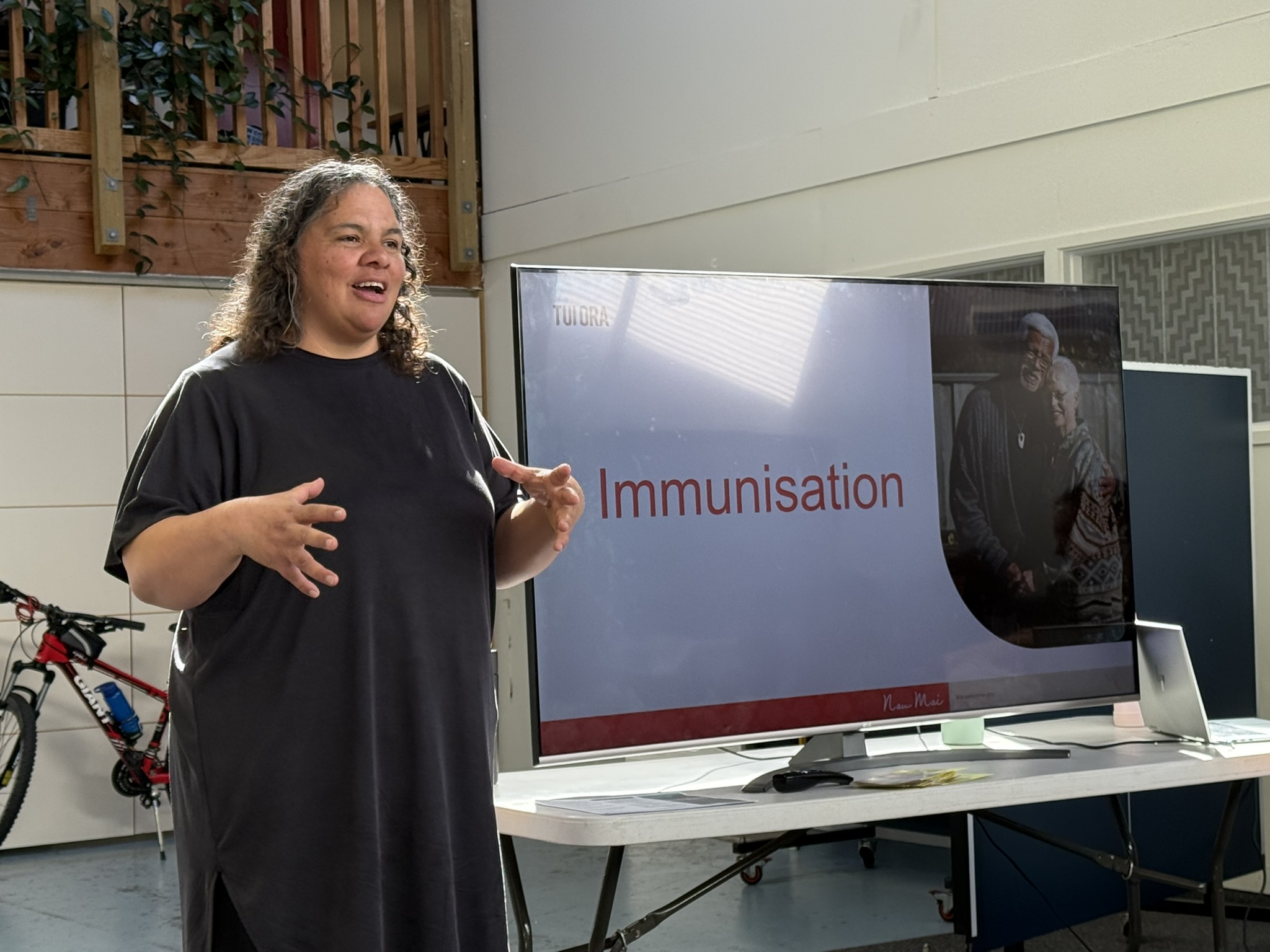A Māori clinical leadership programme is challenging four Tui Ora nurses to share important health information with whānau – by ensuring kaumātua are kept fully informed!
Melissa Kearns (Nurse Practitioner), Romane Stockman (Senior Registered Nurse), Natasha Bishop and Jenna Paki (Registered Nurses), are all currently taking part in Ngā Manukura – a clinical leadership programme, run by Digital Indigenous. The intention of the course is to enhance Māori clinical leadership skills and focuses on understanding issues faced by Māori nurses, aiming to add tools and strategies to their kete. This includes being more politically aware of the gaps that exist for whānau.
“While looking after whānau is extremely important to us, and the balance of taking time out from visits can be a hard one. But it’s crucial we keep on educating ourselves and learning more about the challenges Māori nurses face, and how to step up and overcome them,” says Melissa.
“Ultimately, it makes us better nurses for the people we care for, and more able to support younger Māori nurses who are joining the health sector. Keeping the kōrero going to ensure a Māori point of view is always represented in the way we do things is vital, so this is a way we can contribute to that.”
One of the requirements of the course is the planning and delivery of a project and they chose korero with kaumatua as a reciprocal knowledge sharing space.
“One of the great challenges we face is getting information out to whānau about what they can do to manage their health and hauora,” says Jenna.
“So we thought – how can we change what we are doing in this space? And came up with the idea of ensuring kaumātua are fully informed so they can pass this knowledge down to their tamariki and mokopuna.”
So the nurses have planned a series of presentations and question and answer sessions with Tui Ora’s Pāhake ropū – a group for older people meets regularly for activities, outings and workshops to combat social isolation.
The subjects covered include Māori health statistics, how to access healthcare and the options available to whānau, how to be proactive about your health using the New Zealand/Aotearoa healthcare system, immunisations, hypertension, and diabetes (which are both over represented in Māori populations).
The first session took place this week, with Melissa explaining to the group “We need whānau to hear and understand these messages so they know where to reach out for help so we can start changing Māori health statistics for the better.
To the group the RN’s declared “If we tell you, you can tell your whānau and friends and create a positive ripple effect.”
The presentations received a positive response from the group. Marlene Spence said: “The information is very clear and helpful and it’s good that it is being shared because it is all something whānau should know.
“I’ll be telling my whānau about how important it is to get vaccinated for sure.”
Each of the nurses was pleased about how the session had gone.
“Getting up and speaking in front of people is outside my comfort zone, so that’s another skill I am learning,” Romane laughed.
“The kaumātua were very interested in what we had to say, and asked a lot of questions, which helped us to identify where there may be gaps in knowledge we can address later down the track.”
Digitial Indigenous – Ngā Manukura requires participants to attend four two-day wānanga over four months. A te ao Māori cultural approach is integrated though the course, making it a uniquely Māori experience. Participants are encouraged to push their boundaries of skill and learning, with guest speakers providing valuable insights into the challenges of being a Māori leader and advocate.
Natasha said: “The course deepens connection with oneself, whakapapa, and our innate sense of knowing from our individual backgrounds. It challenges us to step out of our comfort zone and take the lead to share information with our whānau in a way that is engaging, interactive, fun and understandable. The approach we are taking here means we can reach a broader audience than our usual one-on-one service delivery.”
Melissa added: “I aim to be the best nurse and Māori leader I can be, which in turn will help me serve our whānau better. Because, for all of us, that’s what it’s all about.”

